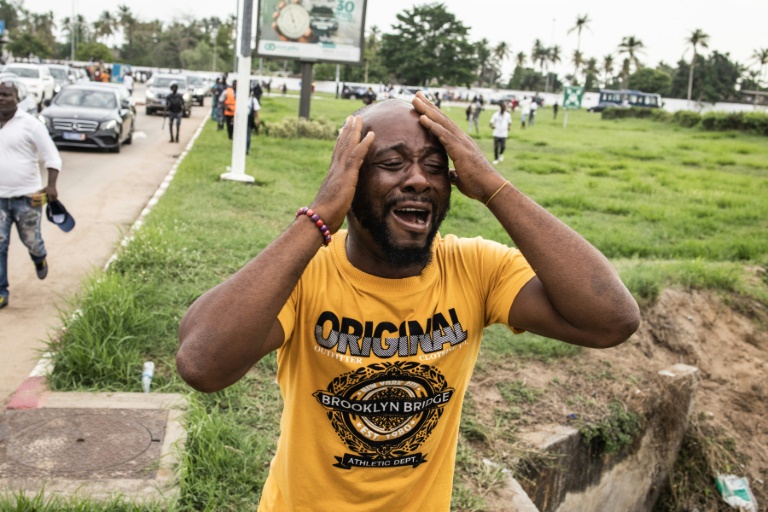Former president Laurent Gbagbo returned on Thursday to Ivory Coast to a mood of jubilation and tension, ending a nearly decade-long absence in which he was tried and then acquitted of crimes against humanity over a bloody civil conflict.
His long-awaited homecoming is a key test of stability in the world’s biggest cocoa producer and the wealthiest country in francophone West Africa.
Thousands of supporters shouted and danced as they celebrated the return of a man they revere as a hero.
But there was also confrontation with the police, who used teargas to disperse crowds.
Gbagbo was humiliatingly arrested in April 2011 after his refusal to accept electoral defeat sparked a conflict that claimed thousands of lives.
He was then hauled off to the International Criminal Court (ICC) in The Hague to face charges of crimes against humanity.
But after the court confirmed Gbagbo’s acquittal in March, his once-bitter rival, the current president Alassane Ouattara, embraced his return in the name of national reconciliation.
Hundreds of relatives, party leaders and workers at Abidjan airport gathered to acclaim Gbagbo as he emerged from a flight from Europe.
His motorcade then headed for his former party campaign headquarters in northern Abidjan, where he addressed supporters.
“I am glad to return to Ivory Coast and Africa,” Gbagbo declared.
Along the road, thousands of supporters, many of them young people whose faces were coated in ashes, shouted in joy.
But tensions heightened ahead of his arrival as police dispersed supporters trying to gather near the airport and witnesses reported scuffles.
AFP journalists heard detonations and saw tear gas smoke near the airport.
Gbagbo flew in from Brussels, where he had been living since the ICC acquitted him in a dramatic decision in 2019. An appeal against the ruling failed in March, paving the way for his return.
He was ousted in April 2011 after around 3,000 people died in the months-long conflict that followed his refusal to accept electoral defeat at the hands of Ouattara.
– New role –
Gbagbo has been newly cast in the role of statesman, called upon to help national reconciliation after elections last year left scores dead.
Ouattara, 79 facilitated his return, issuing his rival with a diplomatic passport and promising him the rewards and status due to ex-presidents.
Gbagbo’s Ivorian Popular Front (FPI) party had held talks about the scale of celebrations with the government, which preferred a more discreet event.
Groups representing the victims of the 2010-2011 post-election violence have condemned the “impunity” he has received and said they would protest his return.
They also point to a 20-year jail sentence Gbagbo was given in absentia for “looting” the Central Bank of West African States during the conflict.
Authorities have already hinted that this sentence will be lifted.
– Veteran politician –
Gbagbo and Ouattara are among a generation of politicians who shaped Ivory Coast after the death in 1993 of its first post-independence leader, Felix Houphouet-Boigny.
Gbagbo was a leftwing campaigner who in the 1970s was jailed for nearly two years, and then went into exile in France, the former colonial power, over his fight to end the country’s single-party system.
He was eventually elected president in 2000, but his tenure was marked by division and rebellion in a nation once seen as a beacon of regional stability.
Elections that should have been held in 2005 were postponed six times until 2010, when Gbagbo lost to Ouattara. Conflict erupted, leading to his arrest and transfer to the ICC in November that year.
Throughout his long absence, Gbagbo has retained a strong grip on the FPI and is revered by many Ivorians, who see him as a defender of the poor.
He is admired for his cheeky personality and gift as a public speaker, in contrast to Ouattara, a former international banker, and dour ex-president Henri Konan Bedie, 87.
Gbagbo’s party insists he is returning in peace. In March, it took part in legislative elections, ending a decade-long boycott of the ballot box.
His attorney Habiba Toure, who was travelling with the ex-president, told AFP in Brussels that Gbagbo “is happy, enthusiastic and wants to play his part to try to reconcile Ivorians. He needs to talk to his people.”
burs-stb-ck/dl/spm/rithe/pvh










